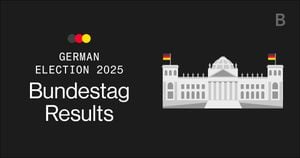The G20 foreign ministers' meeting held last week in Johannesburg, South Africa, unfolded against the backdrop of notable absences from high-ranking U.S. officials. President Cyril Ramaphosa sought to minimize these absences, stating they are "not the end of the world." This encounter featured U.S. Secretary of State Marco Rubio's boycott as he accused South Africa of harboring anti-American sentiments. Organized by South Africa's Minister of International Relations Ronald Lamola, the gathering was pivotal as it prepared for the G20 summit due to take place later this year, marking the first time the summit will occur on African soil.
The tensions between Pretoria and Washington have escalated, with Rubio's choice to skip the meeting serving as the latest indication of discord. U.S. Treasury Secretary Scott Bessent similarly announced he would not be attending the forthcoming finance ministers' meeting, attributing his absence to internal U.S. obligations. Ramaphosa, addressing journalists, affirmed the importance of the discussions, asserting, "The absence of certain leaders is not the end of the world as long as the G20 family can gather and discuss key issues."
During the meeting, Ramaphosa underscored the pivotal role of multilateralism and international law, emphasizing, "It is important for the principles of the UN Charter, multilateralism, and international law to remain at the center of all our efforts." These remarks set the tone for concerns over rising divisions within the G20, particularly on topics like the war in Ukraine and climate change. Ramaphosa called for global leaders to unite during these turbulent times, promoting inclusion and acknowledging the unique challenges faced by developing nations.
South Africa's bid to lead the G20 reflects its vision of advancing the interests of the Global South. This ambition, as Ramaphosa stated, is centered on principles of solidarity, equality, and sustainability. He expressed aspirations for his presidency to be one where every voice is heard, reinforcing the significance of cooperation among countries at various levels of development.
Yet, observers noted the shadows cast by increasingly strained relations with the United States. Tension is particularly palpable due to former President Donald Trump's sharp critiques of South African policies, including his allegations concerning land expropriation without compensation, branded as human rights violations by the U.S. This led Ramaphosa to counter such assertions as unfounded, underscoring the resilience among nations asserting their sovereignty.
The diplomatic fallout also reflects South Africa's non-aligned foreign policy stance amid competing global powers. While Pretoria maintains ties with both Russia and the United States, the G20 meeting brought this complexity to the forefront. Notably, Rubio's absence loomed large, with analysts asserting it cast doubt on U.S. engagement strategies within the G20 framework, potentially giving China greater traction as it expands influence across Africa and other developing regions.
Ramaphosa’s call for diplomacy to mend rifts acknowledges South Africa's challenges as it navigates this geopolitical minefield. Diplomatic dialogues are seen as constructive ways forward, stressing the importance of cooperative engagement to resolve existing misunderstandings.
Ramaphosa's meeting with Russian Foreign Minister Sergey Lavrov emerged as symbolic of these diplomatic endeavors. The encounter aimed to balance discussions on international issues, including the sensitive topic of the Ukraine conflict, within the G20 platform. Analysts remarked on the significance of these interactions as the G20 serves as both discussion space and a test of international relations.
Despite these hurdles, Ramaphosa remains hopeful for the G20's agenda, which aims to prioritize the voices of economically marginalized nations. The president's aspirational rhetoric aligns with South Africa's commitment to showcase the continent's potential as it leads the G20, especially as discussions increasingly center around global debt and climate-related challenges faced by developing countries.
Looking forward, the G20 summit set to occur later this year carries considerable weight as it will define not only South Africa's global position but also the future of international cooperation. Observers will closely monitor how Ramaphosa's leadership and the collective G20 response will address pressing global crises.
This G20 gathering, characterized by absent U.S. officials and heightened diplomacy, exemplifies the contemporary geopolitical climate. The final messages delivered by Ramaphosa during this meeting reflect South Africa's ethos of inclusivity and ambition to solidify its stance as a mediator between competing powers, embodying hopes for rejuvenated dialogues leading to collaborative approaches to global issues.



